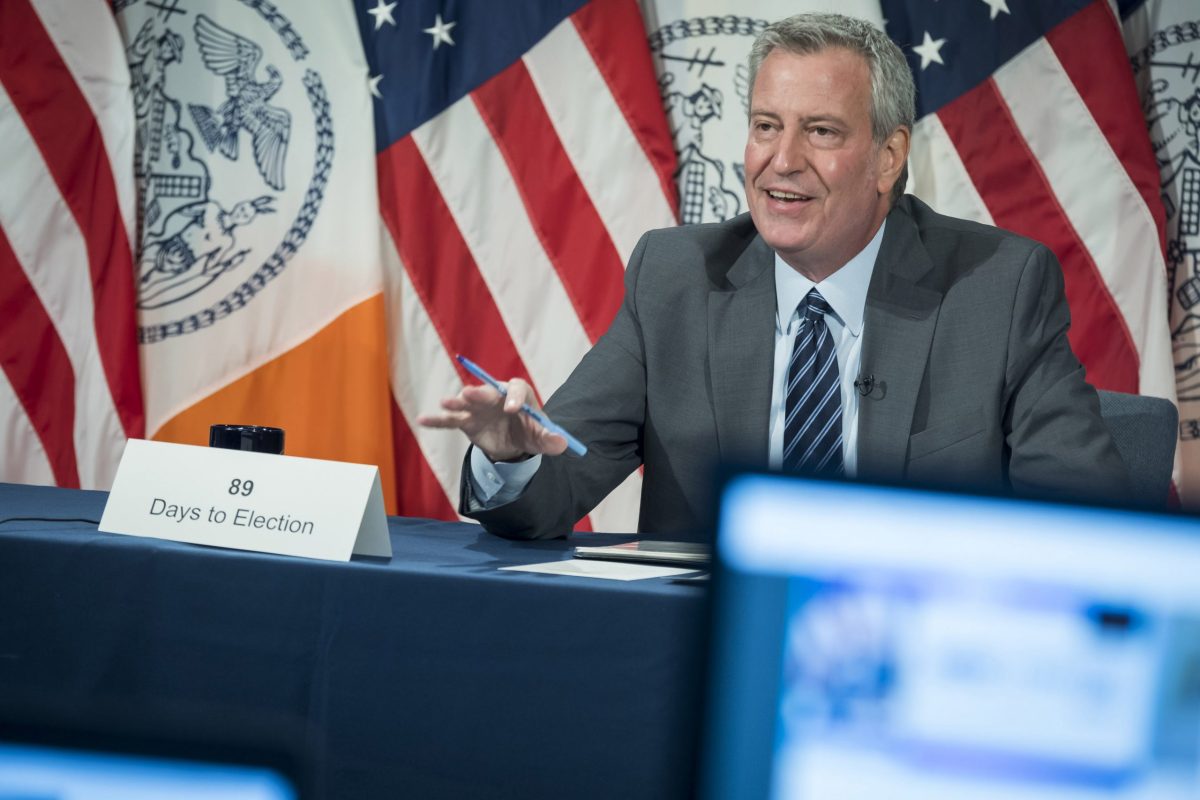Mayor Bill de Blasio again asked the state Thursday to increase the city’s long-term borrowing capacity to help it survive the novel coronavirus pandemic during the Financial Control Board’s annual meeting.
The mayor first floated in May the idea of boosting the city’s ability to borrow funds for its operational budget, as he announced that the economic downturn caused by the novel coronavirus pandemic had left the city in a “$9 billion hole.”
Earlier during the pandemic, the city of New York received $2 billion in federal stimulus funds, but those funds were “far from enough,” de Blasio said. “We are only interested in the amount of borrowing necessary to keep our city running,” he pleaded.
As he did in May, de Blasio referenced on Aug. 6 the state legislature’s decision in 2001 to give New York City $2.5 billion in borrowing authority to help rebuild after the Sept. 11, 2001 terrorist attacks.
“Absolutely a collegial act and that act was respected by the city,” de Blasio told panelists which included New York State Budget Director Robert Mujica and State Comptroller Thomas DiNapoli.
De Blasio warned that if Albany or Washington did not provide the city with any financial help he was ready to move forward with laying off 22,000 municipal workers to make for the budget shortage.
About 940,000 jobs were lost in New York City as a result of the pandemic and although the city was able to regain about 121,00 of those jobs in May as it slowly reopened, it may take years for the city to recover the budgetary impact of such a lost, said DiNapoli.
The city currently projects that it will lose $9.6 billion in revenue for fiscal year 2020 and 2021 and to make up for this loss the city was able to “free up $1.4 billion in resources, through budget cuts.
But, as DiNapoli pointed out, many of those resources are non-recurring and about $4.1 billion came from reserves and $2.6 billion from the retiree health benefits trust that was created to fund future post employment benefits besides pensions.
The city was also able to reduce its general reserve from $1 billion to $100 million for 2021 but that is the minimum for the start of the fiscal year, DiNapoli said. The city-wide savings program is $3.3 billion a recurring value falls to about $1.7 billion annually. Another concern is the growth of the city’s funded debt service which is expected to reach $9 billion by 2024, an increase of 44% over five years among a derth of others.
“Given the city budget and its diminished reserves this office strongly recommends that the city prepare additional gap-closing actions,” said DiNapoli.
As a final attempt to plead with the state, de Blasio argued that the city’s financial situation could change.
“It’s certainly conceivable that we might have different reality as soon as Jan. 20 [2021],” the mayor said, referring to the next presidential inauguration.





































